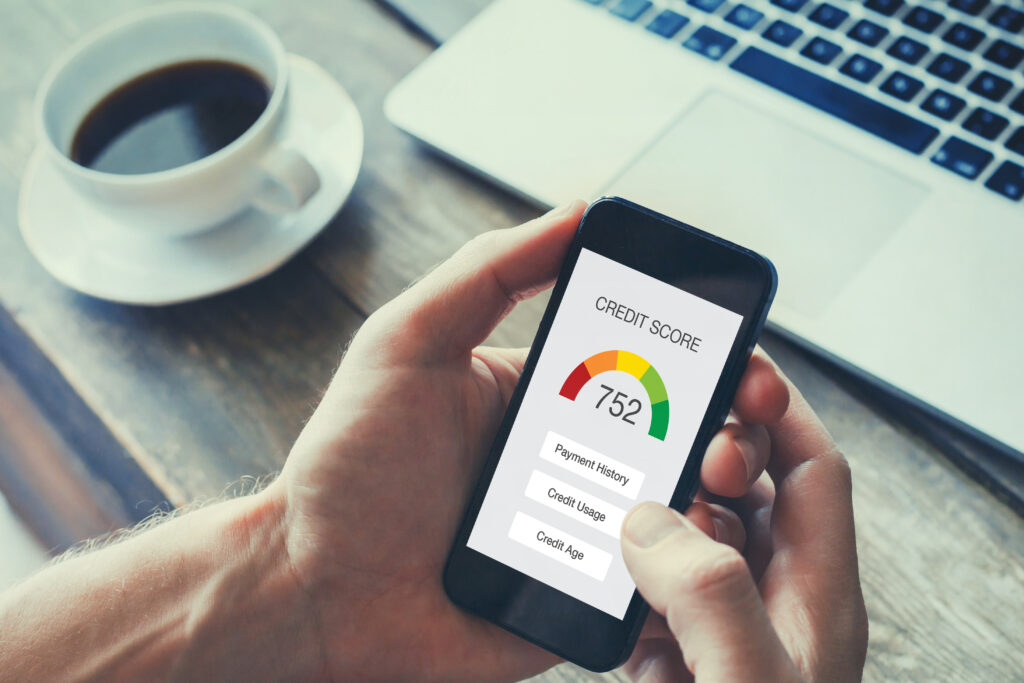Did your auto insurance rates just go up? If so, your increase could be due to any number of reasons. This article will help you understand why your premium suddenly costs more and what you can do to lower it.
There are many reasons why car insurance rates go up. New risk factors in your area and inflation will make premiums jump. For example, you’re likely to pay more if you live in a big city because more people equal more drivers on the road, meaning more collisions and more claims. So, your bill could rise even if you have a squeaky clean record.
In this article:
- Car insurance rate factors
- Events that trigger rate increases
- How to lower your premium
- Frequently asked questions
Car Insurance Rate Factors
Ultimately, auto insurance providers look at your personal details when deciding your premium. If any of them happen to change, your premium could, too. The following is a list of common rate factors:
Events That Trigger Rate Increases
Insurers change your prices largely based on details like these. But it mostly comes down to how likely you are to file a claim or cost your insurance company money. Below are some primary reasons you’ll find an increase in your premium:
You Got Into an Accident
Getting into an accident will increase your premium. Drivers with at-fault accidents on their record will look like a risk to cause one again. In some states, you might also face higher costs even if you’re not at fault. So, if you often file collision claims, that could be why your rates went up.
You Received a Ticket
It’s no secret that police pulling you over isn’t good for your auto rates. You’ll appear at risk of getting in an accident if you get too many traffic violations. Also, your premium could go up even more depending on the severity of your violation. For instance, DUIs and reckless driving will raise prices much more than speeding tickets for going five over the limit.
It’s important to note that insurers will only raise your prices for moving violations. According to Progressive, non-moving violations, such as parking tickets, are unlikely to affect your rates.
Your Credit Score Went Down
You’re likely to see an increase in your billing if your credit or FICO score went down within the last year. Many of the major insurance carriers look at your credit score when they set your premium. Providers see those with lower credit scores as a risk of getting into an accident and costing more money. You don’t have to worry about this in every state, though. These states don’t allow insurers to use credit scores to decide rates:
- Hawaii
- Massachusetts
- California
- Washington
Your Marital Status Changed
For the most part, insurance premiums are lower for married couples. This is because insurers view married couples as safer drivers. As a result, they give them cheaper prices. So, you might see some higher rates if you’ve recently gone through a divorce.
You Moved
Moving affects your premium, even if it’s not out of state. Insurance providers look at incidents in your area and factor them in when they decide rates. That means your zip code could impact your bill without you even filing a claim. Your insurer will charge you more for coverage if you move to a city with lots of collisions. Where you park your car matters, too. Rates could rise if your new home’s parking situation is unsafe and you end up filing break-in claims.
You could even pay more for auto coverage in one state than you would in another. Population sizes, laws, and the total number of accidents can affect insurance prices across different states.
You Drove More Than Last Year
You can expect rates to climb if your mileage increased over the previous year. In the eyes of insurers, you’ll have a bigger chance of being in an incident if you’re behind the wheel more often. Maybe you’re driving more because you moved farther away from work or because gas is cheaper. Whatever the case, prices will likely go up when your annual mileage increases.
Claims in Your Area Went Up
An increase in your billing could be due to a rise in the number of incident filings in your area. According to Staci Pappazi, an independent agent and owner of Pappazi Insurance Agency in San Diego, California, “Bodily injury claims and fatalities are up, causing higher rates for everyone.” Pappazi adds that “insurance is based on the fact that everyone puts money into a pool, so everyone is affected if claims go up.” These cost your insurer lots of money. So, they must raise everyone’s premium to keep up with the losses.
Also, consider the effect of natural disasters on your rates. Natural disasters, such as fires or floods, cause a spike in comprehensive claims across the entire area, which raises your premium. “Just because your car didn’t get damaged, doesn’t mean your neighbor’s didn’t also,” says Pappazi.
You Had a Lapse in Coverage
Your rates could increase if your policy lapses. This happens when you don’t have insurance for a certain amount of time. To avoid a lapse, you can check out options such as non-owner coverage to make sure you always have protection.
You Lost Some Discounts
Another cause for an increase in your premium could be that you lost discounts you used to qualify for. For example, students could lose their good student discount once they graduate or if their GPA drops.
Below are some common policy discounts and how you can lose them:
- Good student. You left school or had lower grades on your last transcript.
- Multi-car. You removed a vehicle from your policy and lost your discount for insuring multiple cars.
- Bundled policy. You were bundling coverages with your provider but removed renters, home, or life.
- Safe driver. Your discount for safe driving could go away if you get into an accident or get a ticket.
You’re Over 60
Your insurer could hike your premium after your sixtieth birthday. Age is an important factor in the insurance industry. People aged 60 and above typically pay more for coverage than younger drivers. This is because providers see senior citizens as higher-risk drivers. A 2018 report by the CDC showed that more than 7,000 drivers over the age of 65 died in car crashes, and about 250,000 sustained injuries. So, even if you’re a safe driver, carriers will still think you’re at an increased risk of getting in an accident as you age.
Inflation
Inflation is the main culprit for many premium increases because each claim ends up costing insurers more. Per Pappazi, “The cost of parts for vehicles has gone up due to inflation. And, as claims become more expensive for insurance companies, so too will your rates.” Unfortunately, there’s not much you can do about rising prices. It’s an inevitability as time goes on.
Price Optimization
Your insurance bill could go up because your provider maximizes your premium through a process called price optimization. Insurers use consumer data, advanced tools, and various techniques to find out the highest price you’d tolerate before you decide to shop around for new coverage.
This means that your rates could be increasing because your provider “optimized” your premium. Whether you tolerate that is up to you. But why should you when it’s so easy to switch to another company for a better deal?
Price optimization isn’t legal in all 50 states, though. 20 states have banned the practice, including:
- Alaska
- California
- Colorado
- Connecticut
- Delaware
- Florida
- Indiana
- Maine
- Maryland
- Minnesota
- Missouri
- Montana
- Nevada
- Ohio
- Pennsylvania
- Rhode Island
- Vermont
- Virginia
- Washington
- Washington, D.C.
How to Lower Your Premium
The bottom line is that many factors can affect auto insurance costs. Anything from lowering your deductible, raising your limits, getting more coverage, and many other factors can change your rates. There are also things out of your control such as:
- Losses
- Increased insurer expenses
- Inflation
For the most part, however, the ball is in your court. You can take steps to lower your rates even if your driving record has blemishes or as you age.
The following are some ways you can lower your premium:
Switch Companies
Just because one company decides to charge you more, doesn’t mean you won’t find a better deal elsewhere. Another insurer might be able to look past the things raising your rates at your current company. Or another provider might offer lower prices because they have fewer company losses.
Many factors go into pricing your premium, and you might find better prices by switching to another insurance company. Try comparing coverage costs between companies to get the best deal.
Look for Discounts
You could lower your rates by looking for discounts. Insurers offer a variety of ways for customers to lower premiums. Some are easy to qualify for, while others take some effort.
A few examples of popular auto discounts include:
These and more could help keep your rates down. One of the best ways to save money is by bundling your coverages. Per American Family, bundling home and auto could save you around 20%.
Talk to Your Agent
If you want a lower car insurance bill, talking to your agent is the best place to start. First off, they can help educate you on why your premium went up in the first place. Independent agent Staci Pappazi says that “agents help people have an understanding. The basis of my business is to educate my clients. They may not be happy that their rates went up, but at least they’ll know why and what they can do about it.”
An independent agent is especially useful if your premium went up unexpectedly. They aren’t tied to any one carrier, so they can help you shop around if need be. If you see a rate increase, your agent will be happy to help you find a solution.
Be Careful about Who You Add to Your Policy
Adding a driver to your policy could raise your auto premium. For instance, adding a teen driver or someone with a bad driving record could badly affect your premium. To keep rates reasonable, be careful with whom you add to your policy.
Also, remove someone from your policy as soon as possible if they cause an accident or receive a citation for something serious. It’s not a guarantee, but you could avoid a spike in your rates by removing a high-risk driver.
Keep an Eye on Your Billing
You can ensure your rates are at the lowest they can be by keeping an eye on them. Insurance companies aren’t always perfect. They could make an error when deciding your prices. You could save money by paying close attention to your premium and reporting any issues or concerns to your insurer.
Drive Safely
The most effective way to keep your rates down is to drive safely. It may seem obvious, but it’s true. Staying out of accidents and avoiding costly tickets and violations will save you a lot of stress and money in the long run. Your insurance provider might even reward you with a safe driver discount if you keep it up for a long time.
Frequently Asked Questions
Why did my premium go up for no reason?
Premiums sometimes seem to go up for no good reason. The truth is, there’s always a reason when your insurance costs increase, but it’s not always an obvious one. Insurers hand out prices by looking at factors like age, car make/model, where you live, and more. Your rates could go up if any one of these relevant personal details changes.
Why is my premium going up every year?
Your insurance could go up yearly for many reasons, but one of the most common is inflation. Your rates could increase as markets change every year. Another reason premiums steadily increase is price optimization, which sounds positive but is designed to test how much you’ll pay before jumping ship to another carrier. Pricing optimization is one of the main reasons you should get a quote every year to test the market.
How can I keep my rates from going up?
Unfortunately, rates almost always go up. A better question might be how to keep costs from rising too much. and luckily, there are things you can do. First, drive safely and defensively. Avoiding tickets and accidents will go a long way towards making your premium affordable. Also, try to remove drivers with poor records from your policy. If someone in your household recently received a ticket or caused an accident, consider removing them from your policy.
What can I do if I caused an accident and my rates went up?
If you caused an at-fault accident, your rates are sure to go up. If you qualified for the claims-free discount, you’ll more than likely lose that and end up as a high-risk driver. Unfortunately, there’s not much you can do about your costs in this case. Time is really the only cure. In general, accidents remain on your record for three to five years. However, this varies by state.
In the meantime, you should try to find any way to lower your rates. This includes:
- Shopping around
- Finding discounts
- Putting together a few years of safe driving


